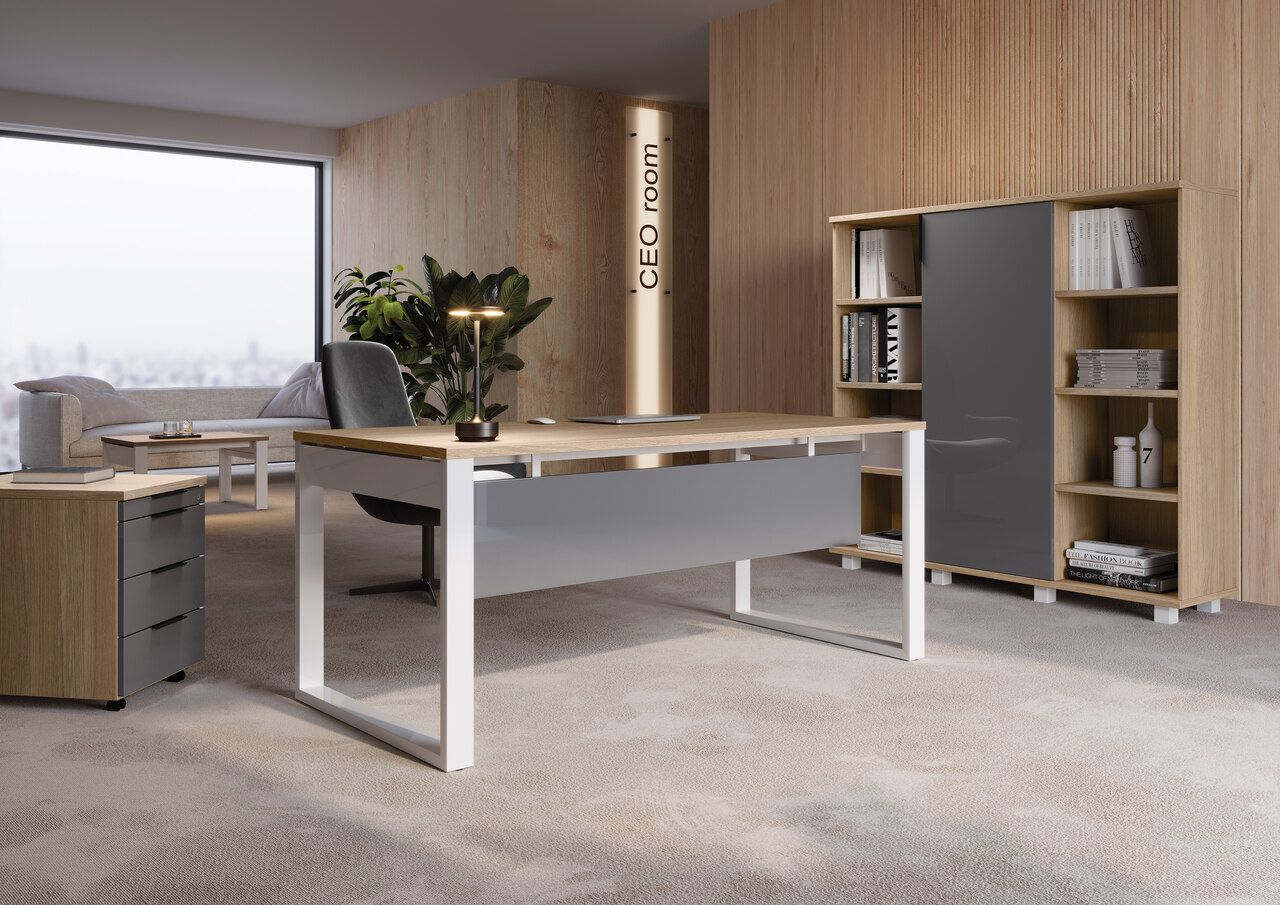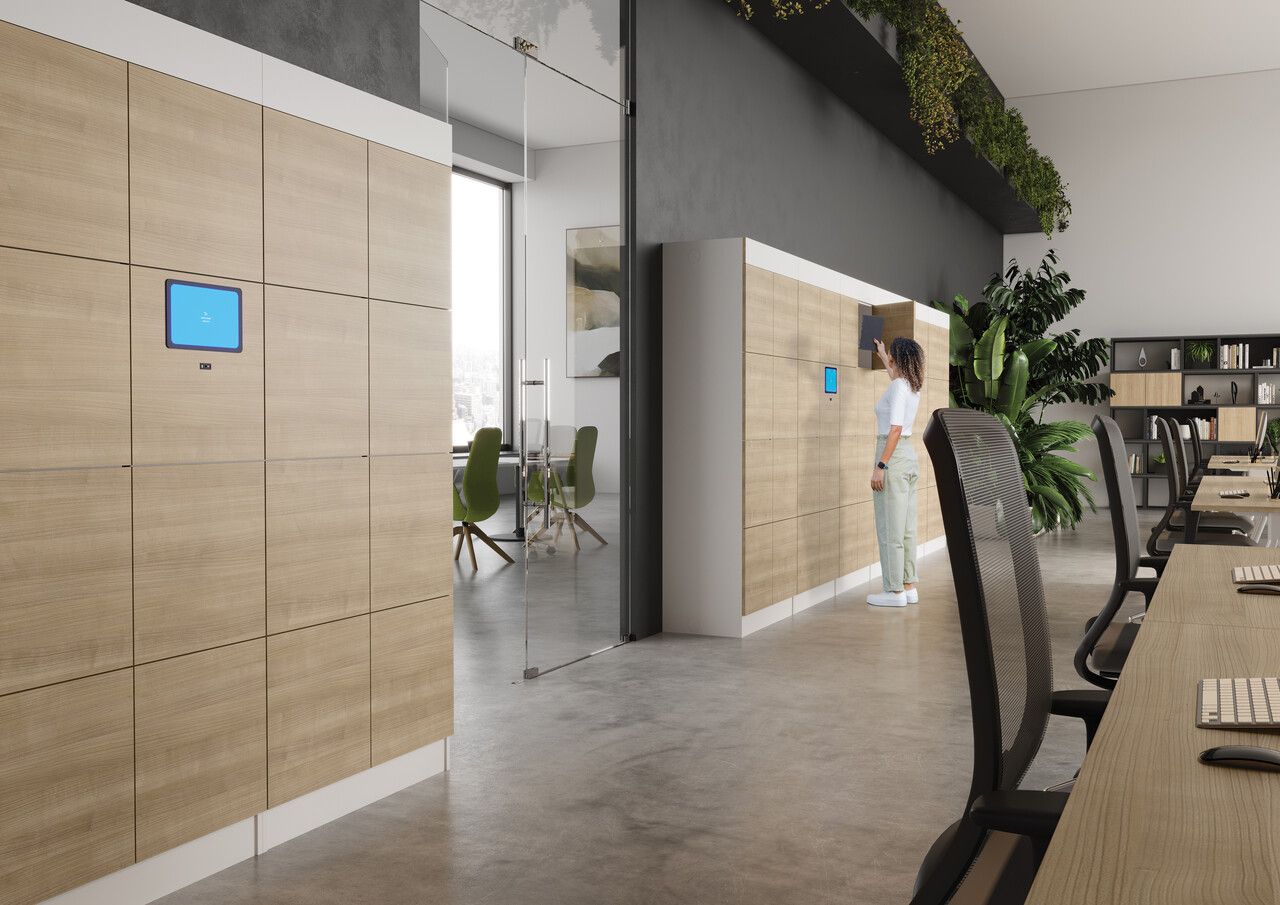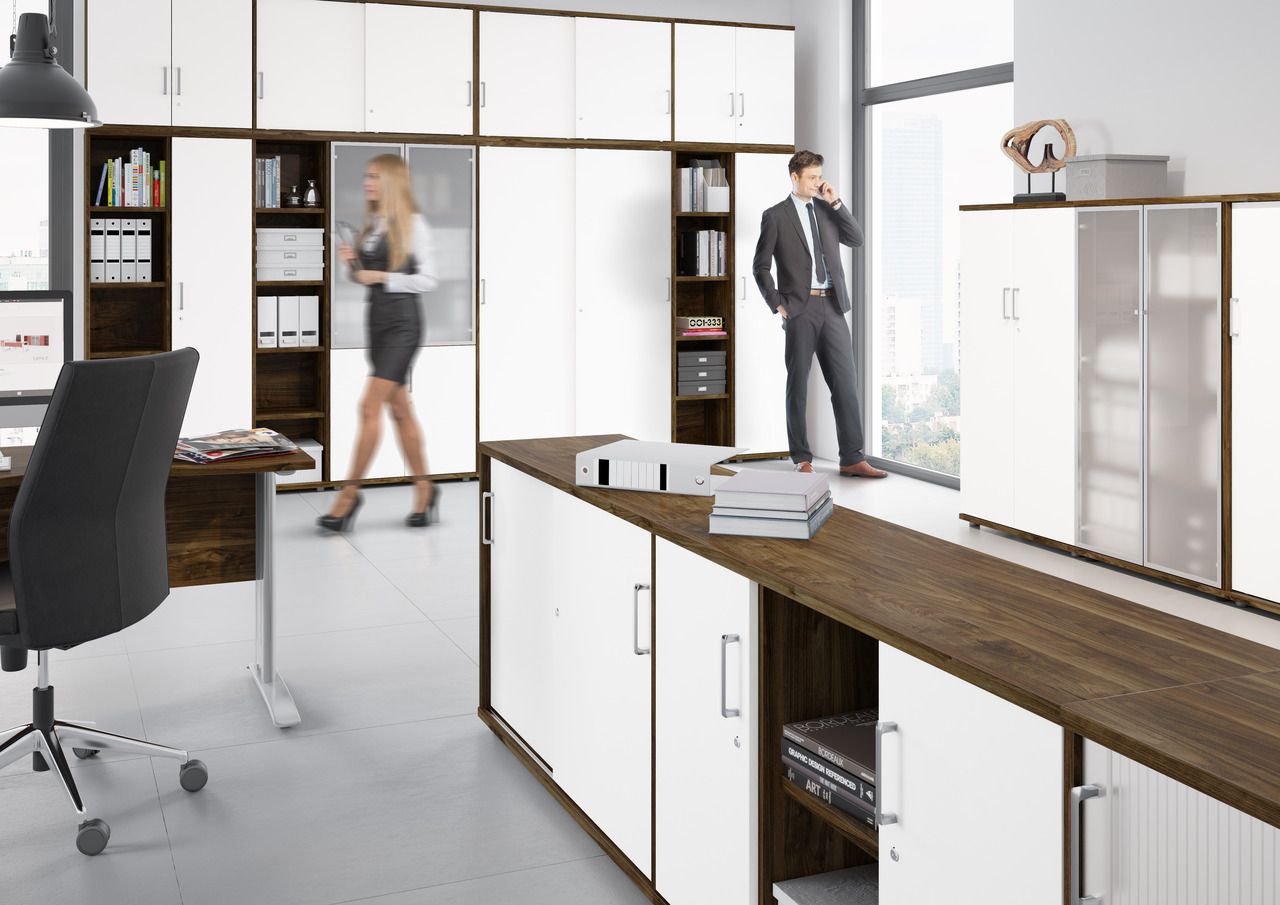Office furniture for an accounting firm – what to keep in mind?

An accounting office can be an excellent business idea, provided we have the right knowledge and skills. More and more small, single-person companies as well as larger enterprises are using such services. However, running an accounting business comes with certain challenges. One often overlooked aspect is the design and arrangement of the accounting office. It’s important to remember that furniture for an accounting office, in addition to being aesthetically pleasing, should also serve several other functions.
Ergonomic office furniture
The basic principle of arranging any office, not just an accounting one, is ergonomics. A workspace that does not meet the physical and mental needs of an employee can negatively impact their health and the quality of their work. Studies show that non-ergonomic office furniture can cause back and neck pain, reduced concentration, and, consequently, an increase in errors made by employees.
In an accounting office, such a situation can be particularly serious, as the business could be held responsible for damages resulting from incorrectly prepared accounts. To avoid this scenario, it is worth investing in good office chairs and ergonomic desks. For desks, consider choosing ones with adjustable height – this makes it easier to tailor the equipment to the individual needs of each employee.

Accounting office furniture and safety
Another aspect to consider when planning the layout of an accounting office is confidentiality. Accounting offices are obligated to protect data in accordance with various regulations – including GDPR, the accounting act, the act on combating unfair competition, and, in certain cases, the act on tax advisory services.
It is therefore in the interest of an office providing such services to invest in office furniture that allows for the secure storage of sensitive data. Sturdy, enclosed office cabinets equipped with locks—either key or code locks—are especially useful, as they prevent unauthorized access to clients’ confidential information. We have discussed secure document storage in more detail in another article: GDPR – How to Safely Store Documents?

Maintaining order in an accounting office
An important aspect for accounting offices is maintaining order and properly archiving documents. Keeping things organized allows for more efficient use of time and reduces stress. On the other hand, losing or damaging documents is not only an unacceptable breach of professional ethics but can also serve as a basis for a client to seek legal redress.
When planning the layout of an accounting office, it is worth considering an optimal number of shelves and racks to make it easier to organize documents. A good choice is furniture that is part of a modular collection – this way, expanding the office’s equipment won’t pose any major problems.

Aesthetic furniture for an accounting office
Last but not least, the appearance and quality of office furniture are crucial. They have a direct impact on shaping the image of an accounting office. Furniture made from high-quality materials, crafted with attention to detail, signals to potential clients that the company operates consciously and responsibly.
The style of office furniture also plays an important role – classic forms and muted colors emphasize the stability and reliability of an accounting office, a company entrusted with managing finances. Entrusting an external firm with accounting requires a business to place a high level of trust in that firm. This trust is easier to earn if the company projects an image of reliability and professionalism.
Managing an accounting office can be quite a challenge. It requires balancing several aspects – ergonomics, client information security, functionality, and aesthetics. Nevertheless, it is worth making the effort to choose office furniture that ensures all of these qualities.